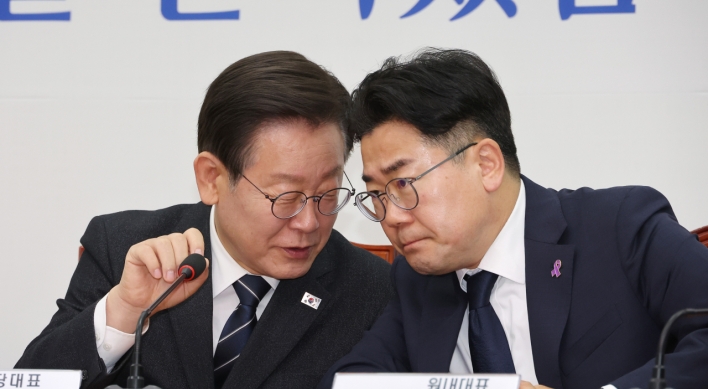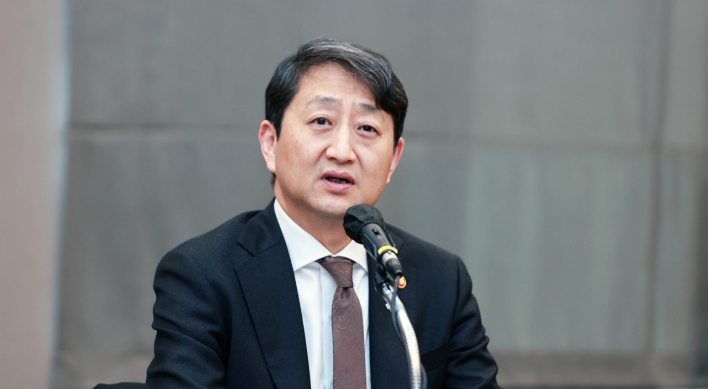A group of opposition lawmakers, who visited China this week to discuss the planned deployment of an advanced U.S. anti-missile system to South Korea, defended their controversial trip Thursday, saying it helped bilateral diplomatic relations.
Six first-term lawmakers of the main opposition Minjoo Party of Korea (MPK) visited Beijing from Monday to Wednesday to discuss with Chinese officials and scholars the plan to deploy a Terminal High-Altitude Area Defense battery to the peninsula by end-2017.
During the general meeting of MPK lawmakers, Rep. Kim Young-ho, who led the group, briefed his party colleagues on the results of the visit to China, which critics have said further aggravated national division over the THAAD issue and helped strengthen Beijing's position against the missile defense shield.
"(Their visit to Beijing) is meaningful in that the visit helped bilateral diplomatic relations," Kim was quoted by a party spokesman as saying.
During Kim's briefing to party lawmakers, he underscored that China has a "well-established" strategy to respond to the recent decision by Seoul and Washington to deploy a THAAD battery on the Korean Peninsula.
Kim also pointed out that public opposition to THAAD within China was "considerably more serious," and that the stationing of THAAD in South Korea could damage ties with Beijing and trigger Cold War-like tensions in the region.
The lawmaker then said that his fellow lawmakers and Chinese scholars shared the need for the leaders of the two countries to address bilateral friction over THAAD when they meet at the G-20 summit slated to take place in China next month.
THAAD, a core element of America's global multilayered missile defense program, has emerged as a major thorn in the relations between Seoul and Beijing. China believes the missile interception system would escalate regional military tensions and undermine its security interests.
Seoul has defended its deployment decision as an "inevitable, self-defense" measure to cope with Pyongyang's evolving nuclear and missile threats. (Yonhap)
- Pianist Son Yeol-eum named grand prize winner of Daewon Music Awards
- Young Korean doctors seek plan B: cosmetic dermatology or overseas
- Lim Young-woong outshines BTS for parents'gift
- Namkoong Sun’s 'Time to Be Strong' nabs 3 prizes at Jeonju film fest
- Alert of 70 'fierce dogs' on loose in Daejeon turns out to be just 2
- 20 major S. Korean conglomerates have no female inside directors
- Less than 1 in 4 Seoul apartment deals are under W600m
- School turns snack bar into screen golf zone, used by students only 3 times
- DP urges Yoon to accept proposal on cash handouts, special counsel probe over Marine's death
- Ministry warns of punitive action over university's suspension of med school quota expansion










![[KH Explains] Can tech firms' AI alliances take on Nvidia?](http://res.heraldm.com/phpwas/restmb_idxmake.php?idx=644&simg=/content/image/2024/05/07/20240507050619_0.jpg&u=)







